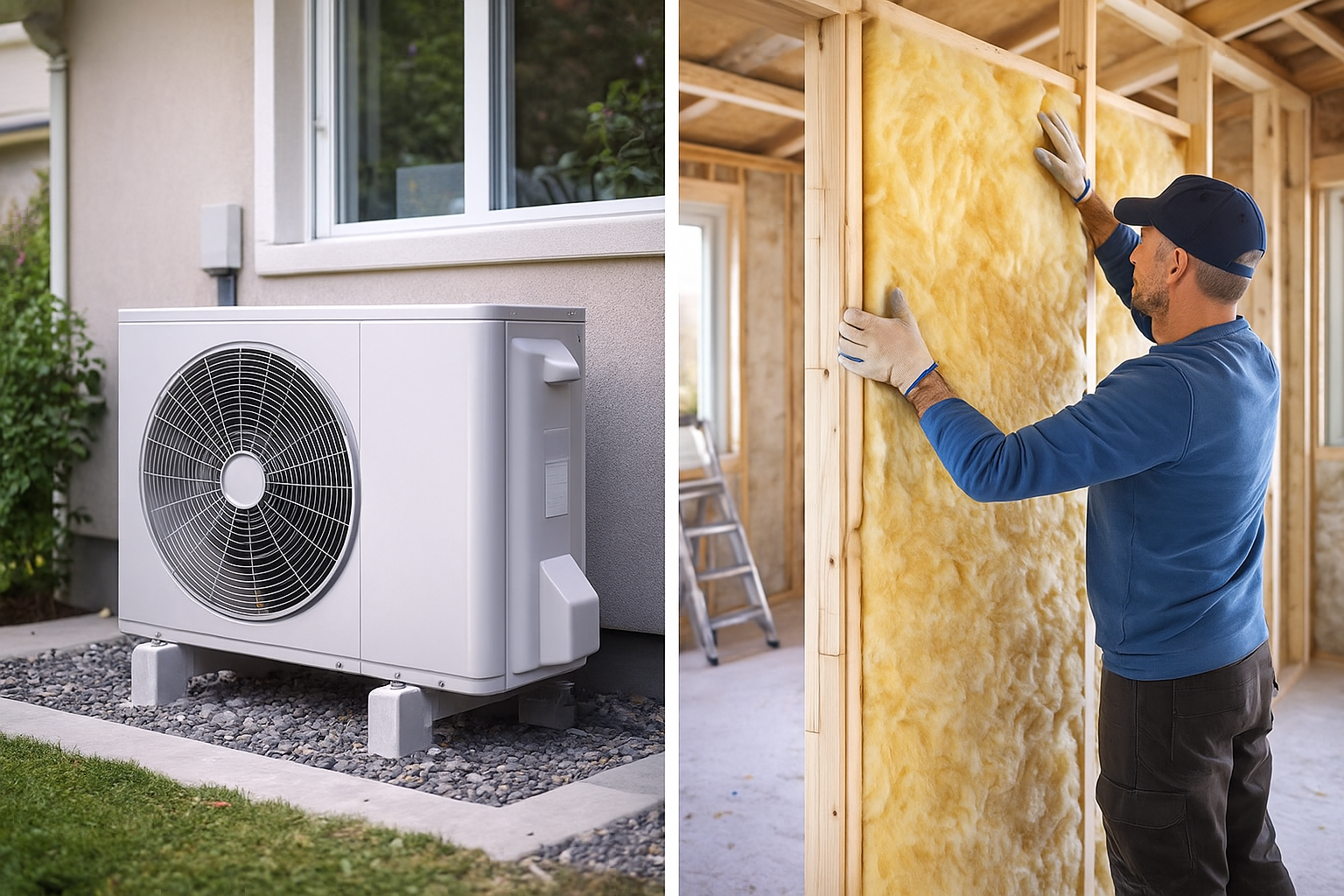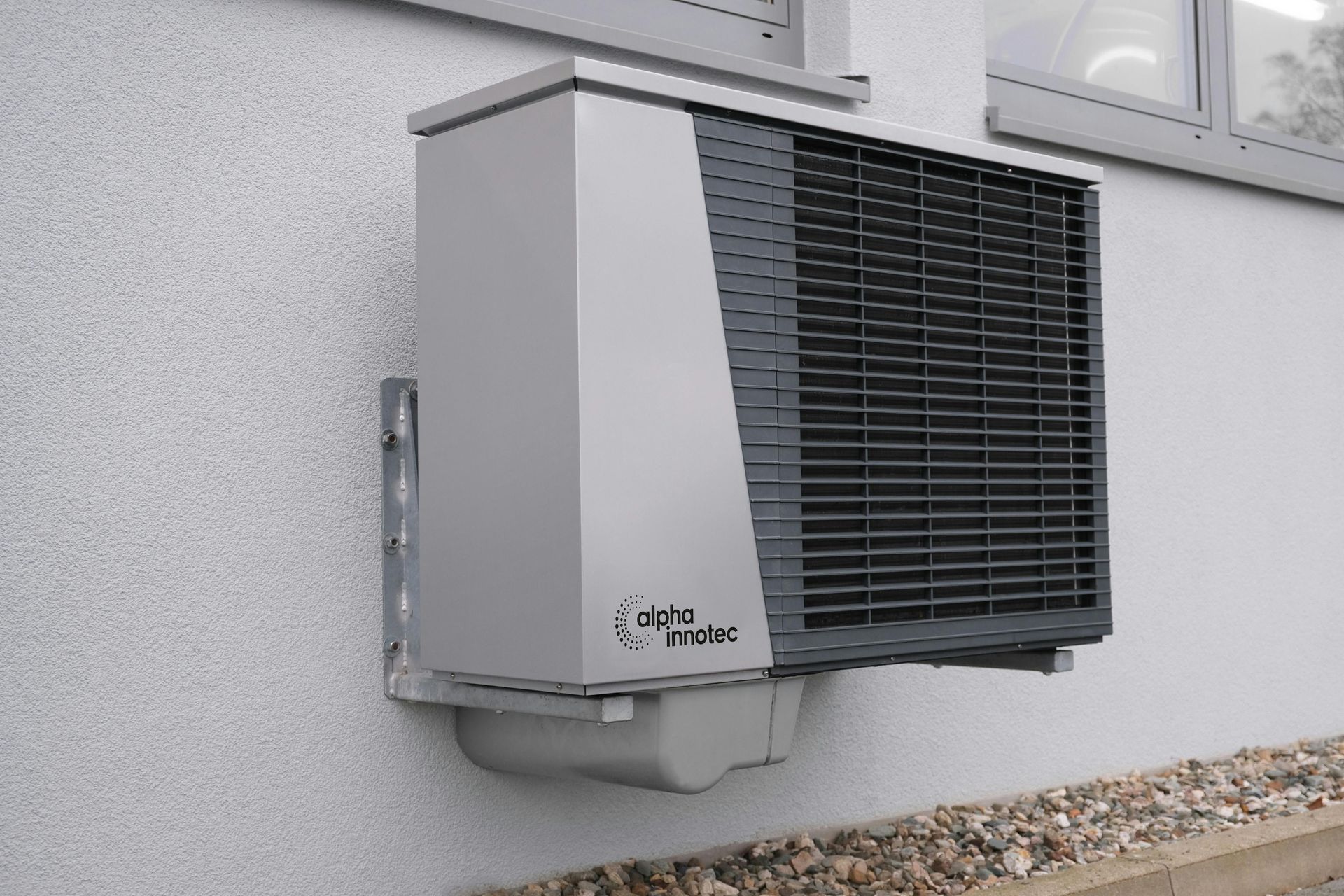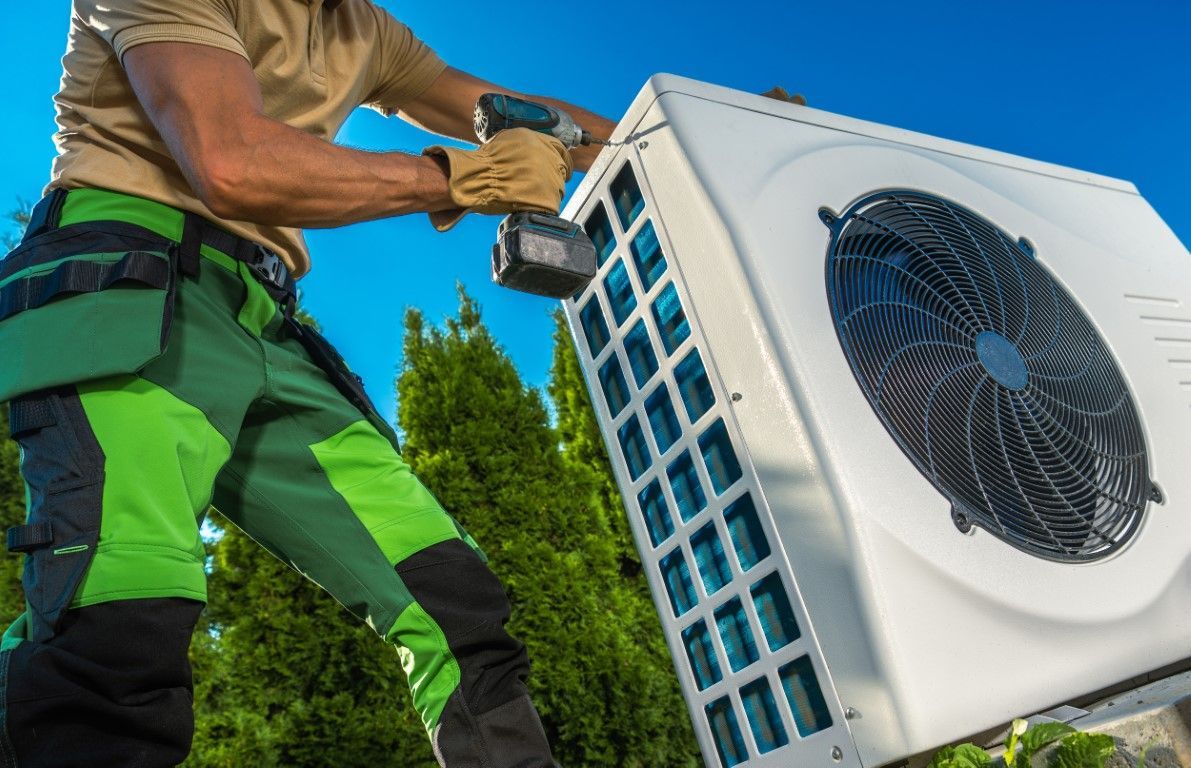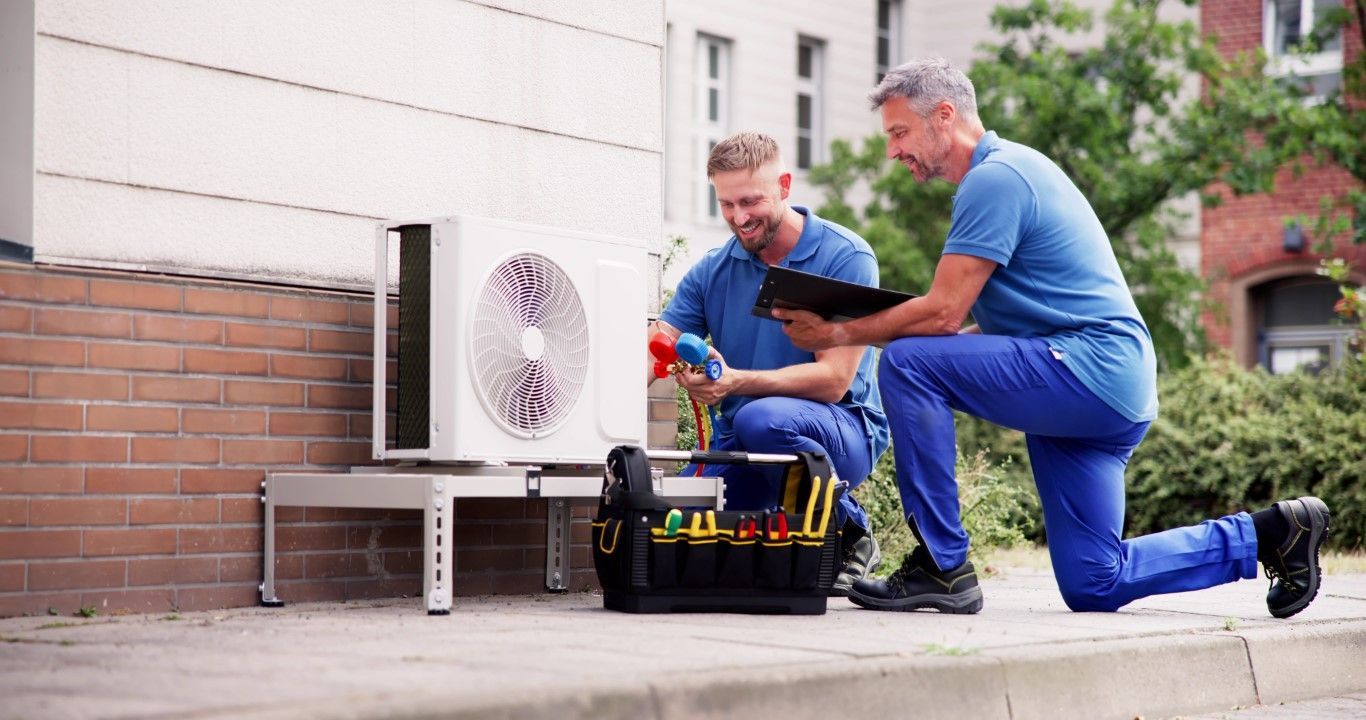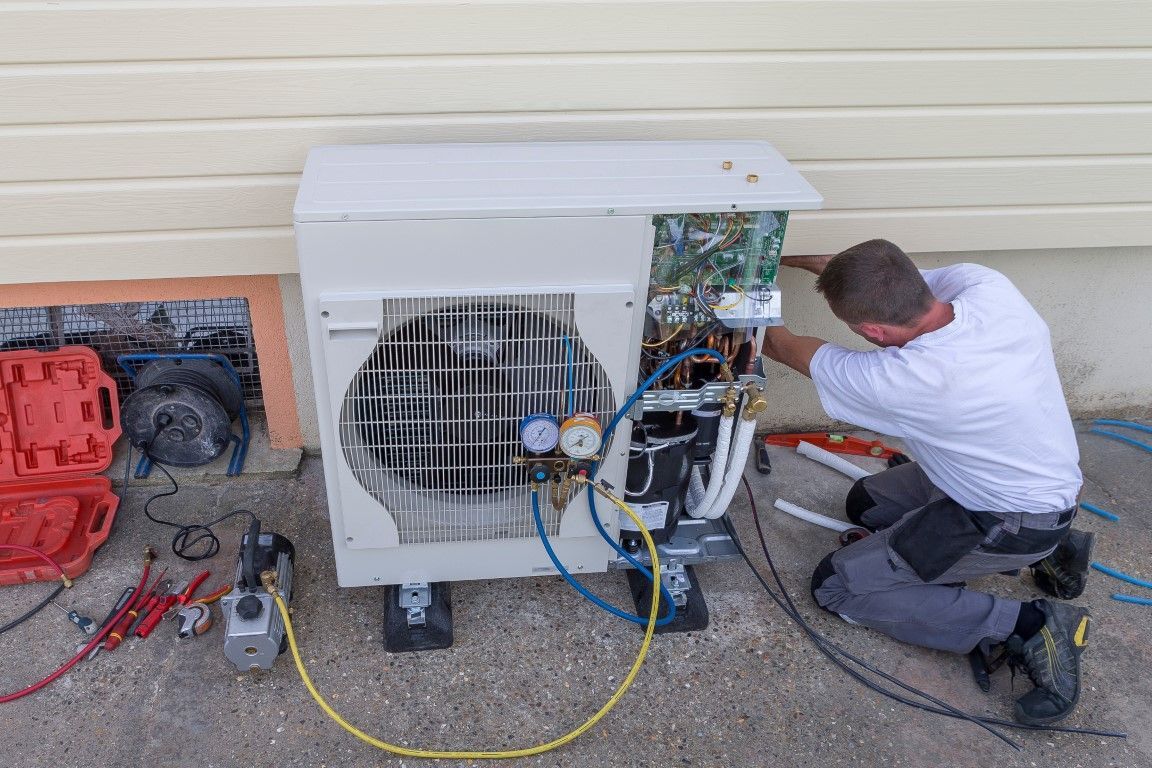Wimbledon Heat Pumps
0203-984-9850

When you're comparing heat pumps to air conditioners for your home, it's important to know the differences and similarities between them. They're actually quite similar in some ways: some heat pumps can cool your home, and some air conditioners can also provide heat. Heat pumps, whether air source or ground source, are becoming more popular as a greener way to heat homes, but they're not new technology. They've been around since the 1940s when Robert C. Webber noticed that cooling systems were rejecting heat. Since then, heat pumps have been used to heat homes, and the technology has improved a lot. We're all familiar with air conditioning in places like our workplaces, cars, hotels, and shops. While we usually think of air conditioning as cooling, many air conditioners can also provide heat nowadays. Is it Possible for Air Conditioners to Provide Heating for a Home? Air conditioners can heat a home by passing warm air over very cold pipes or plates containing refrigerant. This refrigerant absorbs heat, cooling the air and sending the waste heat outside. Air cycles through the unit multiple times, getting cooler with each pass. Humidity is also removed, and a condensation pump handles the water. Some air conditioners use a reverse cycle to extract low-grade heat from inside air, enhancing it before releasing it back indoors. The cooling effect is sent outside via the fan unit, with only the heat traveling through the air. Air conditioners and heat pumps are both HVAC systems, and air conditioners are essentially air-to-air heat pumps. While they operate similarly to air source heat pumps, they work in reverse when providing heat. Can Heat Pumps Cool a Home? Before we get into that, let's talk about the different types of heat pumps. Some heat pumps take heat from water systems like radiators or underfloor heating. These are called air to water heat pumps. Others get heat from the ground, known as ground to water heat pumps. And then there are air source heat pumps, which take heat from the air outside. The big difference between these is how they transfer heat to your home. Heat pumps work by turning cold liquid into a hot gas. This gas passes through a compressor, making it even hotter. Then, it gives off heat to warm up your home. This process is similar to how your fridge or air conditioner works. The only difference is that with heat pumps, we use the cooling part as the useful element, and the heat is released outside. So, if you're thinking about getting a heat pump, decide if you want it for cooling or heating—it's that simple.
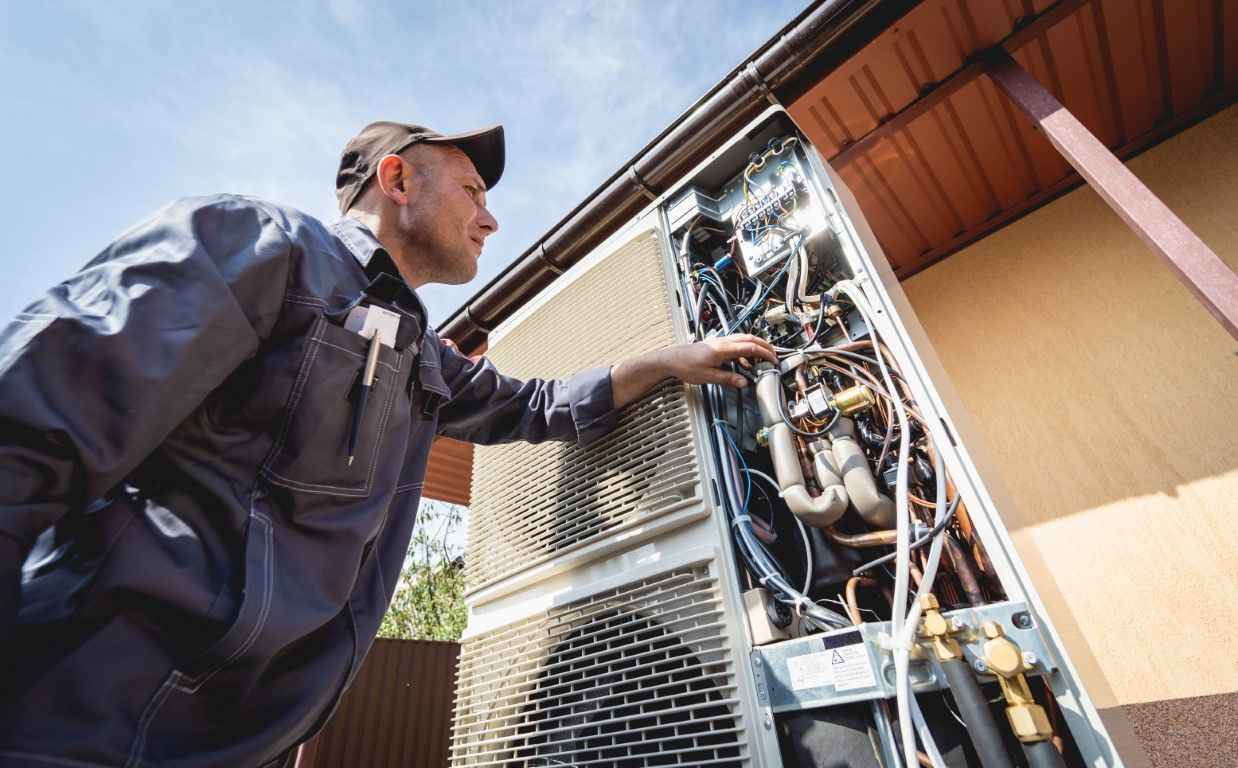
The Importance of Regular Air Source Heat Pump Servicing Maintaining your Air Source Heat Pump (ASHP) through regular servicing is crucial. During an annual service, technicians inspect filters, check refrigerant levels, and ensure proper functionality. This proactive measure helps prevent significant breakdowns and costly repairs in the future. Furthermore, it results in energy savings, reduced utility bills, and a consistently comfortable indoor atmosphere throughout the year. The significance of regular servicing extends beyond convenience—it actively contributes to environmental preservation by minimizing carbon footprints. A well-maintained ASHP operates with enhanced efficiency and sustainability, aligning with global efforts to combat climate change and promote eco-friendly living practices. In essence, prioritizing regular ASHP servicing offers a multitude of benefits. It not only saves you money and prevents potential issues but also plays a vital role in advancing environmental conservation. By taking this proactive approach, you contribute positively to both your financial well-being and the broader goal of sustainable living.
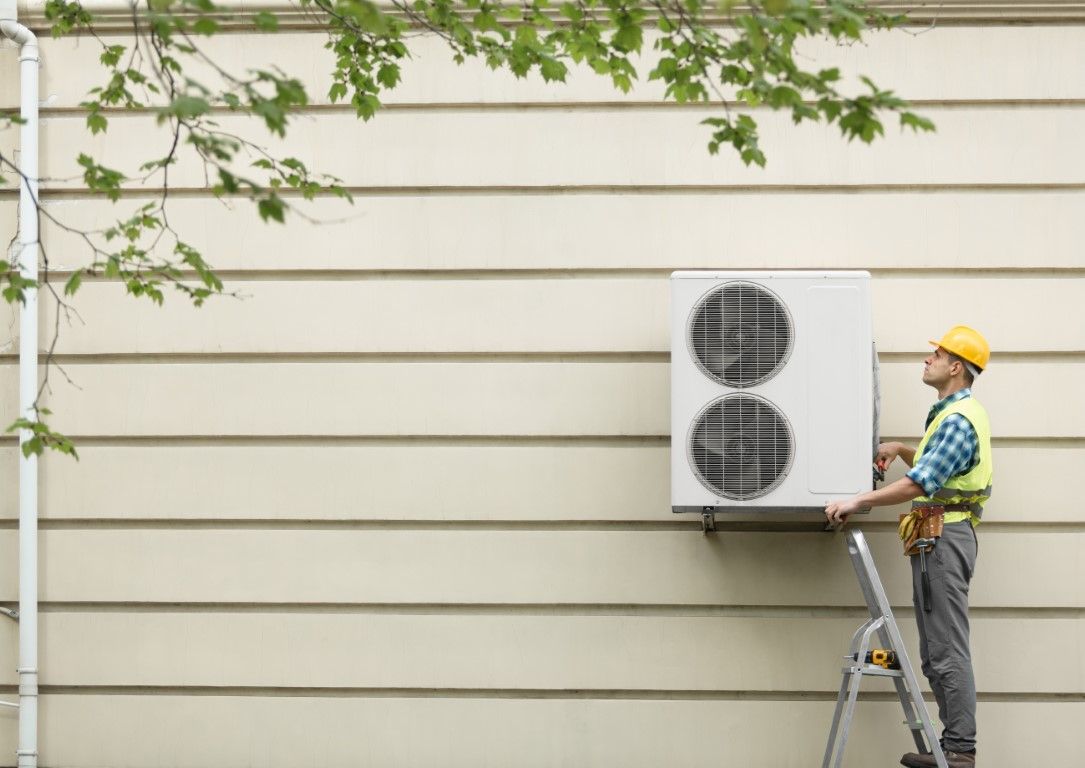
Advantages of Installing Air Source Heat Pumps for the Environment The installation of an air source heat pump system presents a notable opportunity for mitigating one's carbon footprint by harnessing a renewable and naturally abundant heat source: the air. The degree of CO2 reduction achieved through this technology varies depending on the type of fuel it displaces. Notably, the replacement of coal or oil boilers typically results in more substantial reductions compared to replacing natural gas systems. Nevertheless, it's essential to acknowledge that operating a heat pump necessitates a power source, commonly electricity, which emits some CO2. Maximizing the efficiency of a heat pump requires a thorough understanding of its optimal usage. This may entail adjusting heating settings for extended durations compared to conventional heating systems, ensuring that the heat pump operates at peak efficiency while minimizing environmental impact.
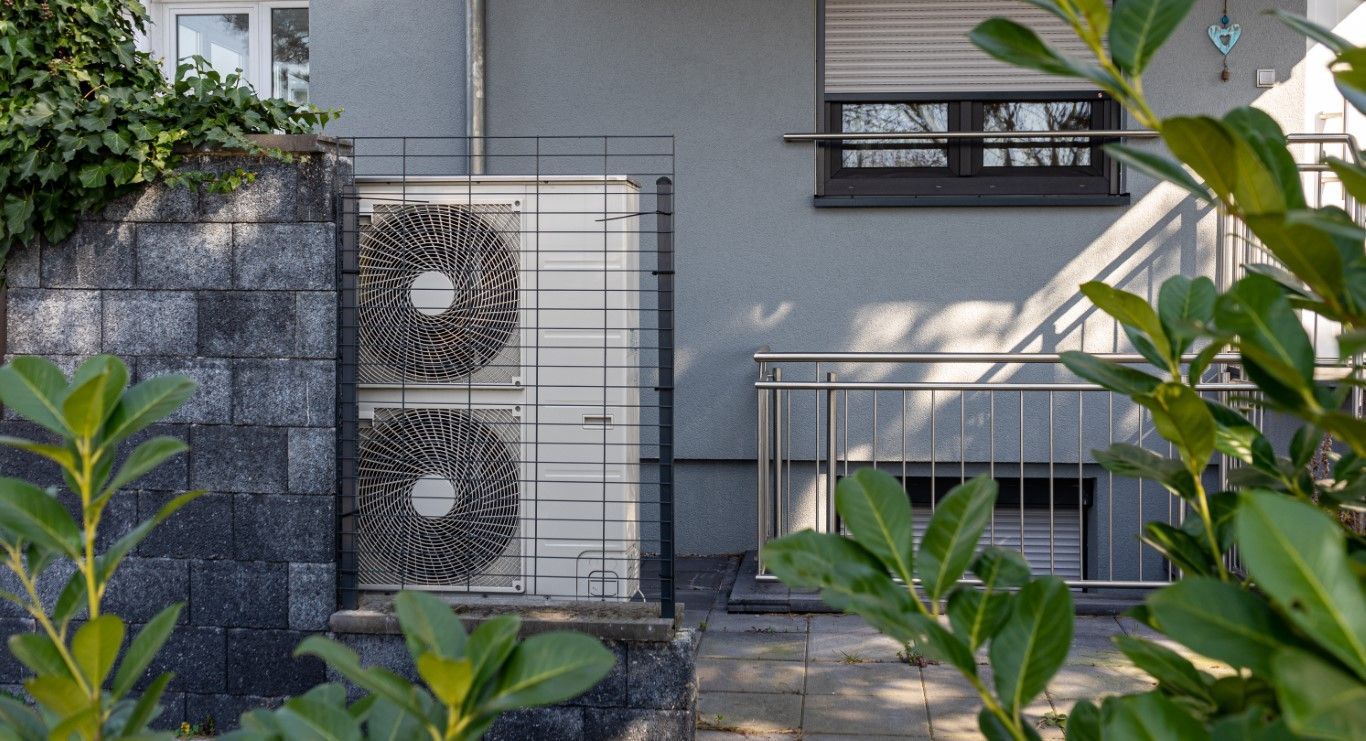
In its most straightforward form, a heat pump is like a magical conductor orchestrating a symphony of temperature. Using electricity and refrigerant, it conducts heat from one locale to another. Picture this: on a chilly day, it conjures warmth from the ambient air outside your abode and channels it into a coolant. This coolant, akin to a phoenix rising from the ashes, is then compressed, igniting its temperature to impressive heights. The stage is set for the grand performance as the heated coolant takes center stage in the indoor unit of the heat pump. Here, it dances with the passing air, raising the temperature to meet the crescendo of the thermostat's desire for warmth indoors. This ensemble comprises two key players: a walled cassette nestled within your dwelling and a condenser unit stationed outdoors. Their connection, akin to a secret passage, lies in the refrigerant line. Controlled by the maestro, the thermostat, this duo delivers both heating and cooling serenades for your home. Imagine this: when the need for warmth arises, the outdoor unit's fan leaps into action, conducting an intricate ballet to extract warmth from the chilly outdoor air. This warmth is then whisked away via the refrigerant line to the indoor unit, where it fills your home with the comforting embrace of heat. Should you seek cool respite instead, the performance simply reverses its rhythm.
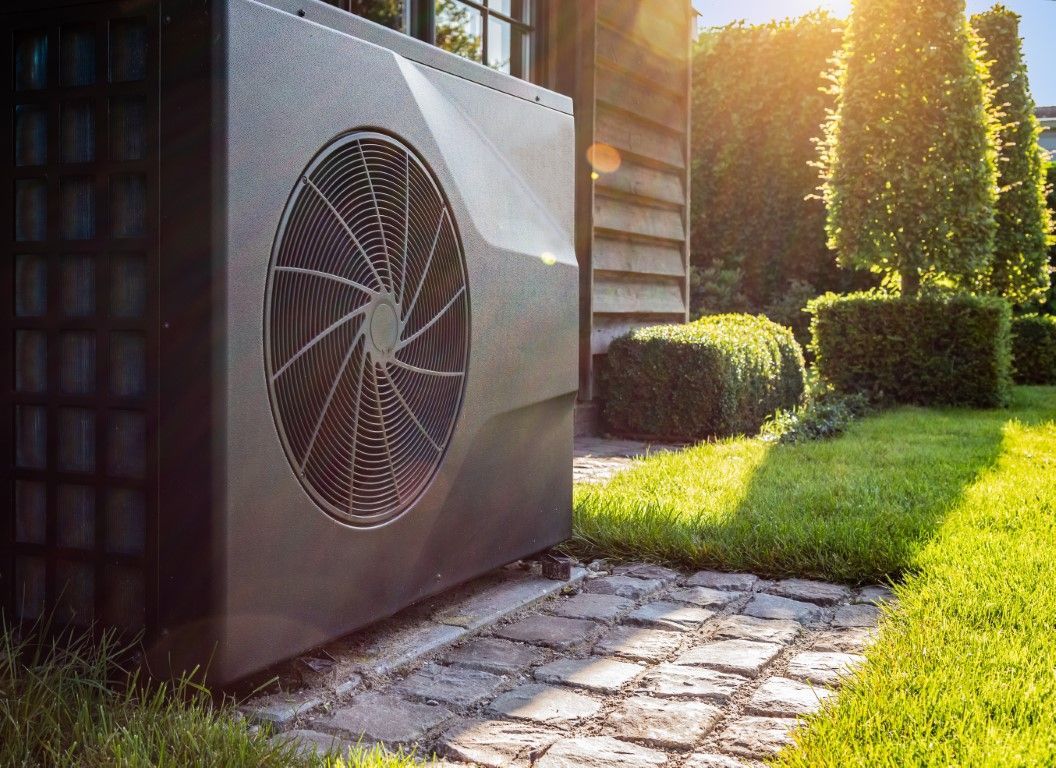
Air Source Heat Pumps are innovative heating and cooling systems that extract heat from the outside air and transfer it indoors to provide warmth during colder months. Conversely, they can also reverse this process to cool indoor spaces during warmer weather. Here are the benefits of Air Source Heat Pumps. Cost Savings: Keep your hard-earned money where it belongs—with you! Heat pumps are incredibly efficient, helping you cut down on heating expenses. Eco-Friendly: Reduce your carbon footprint and do your part for the environment. Heat pumps use renewable energy sources, making them a sustainable heating solution. Consistent Comfort: Enjoy consistent heating throughout your home, no matter the weather outside. Say hello to cozy winters and refreshing summers! Low Maintenance: Forget about frequent repairs and upkeep. Heat pumps require minimal maintenance, giving you more time to relax and enjoy your comfortable home. Government Support: Take advantage of government incentives and rebates available for heat pump installations. Make the switch today and start saving!


